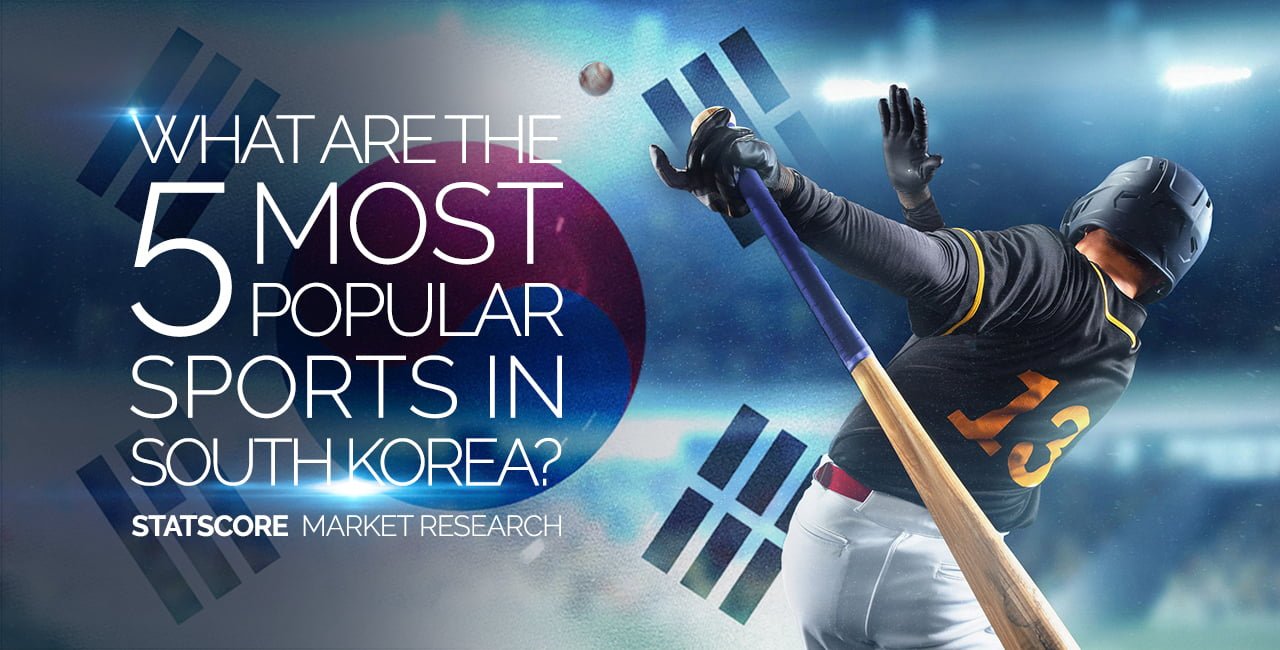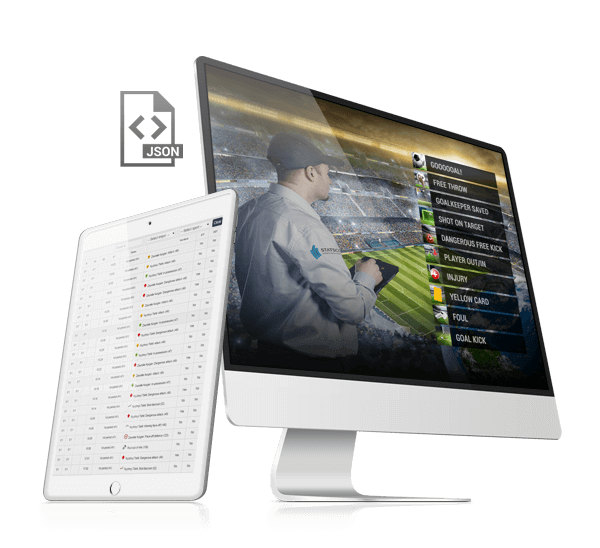Lance!, one of Brazil’s leading digital sports media platforms, is enriching its coverage of the ongoing Club World Cup with STATSCORE's data. Leveraging STATSCORE’s special edition of CupCenter’25, fully customized for the prestigious tournament, Lance! delivers an...
What are the 5 most popular sports in South Korea?

The popularity of professional sports has been growing rapidly, especially before the outbreak of the COVID-19 pandemic. The trend has been driven by increased leisure time, a focus on a healthy lifestyle, and the emergence of Korean stars such as soccer player Son Heung-min.
Let’s take a look at the most followed sports in South Korea.
1. Baseball
In 2021 around 1.4 million fans attended KBO baseball games, which is in fact, far from the record number of 8.7 million in 2017 (source: Statista.com). The decrease in the number of fans was caused by the COVID-19 pandemic.
However, the number of fans going to baseball games still makes it the most popular sport in the country. Moreover, they can enjoy some of the most modern ballparks in the world such as Gocheok Sky Dome, Daegu Samsung Lions Park, and Changwon NC Park.
The game is believed to have been brought to the Korean Empire in 1905 by American missionaries. It had been continuously growing in popularity throughout the years until the 1945 division of the peninsula into North Korea backed by the Soviet Union and South Korea, backed by the United States. From then on, the sport kept growing only in the South, while the North didn’t see further investment in the game.
The highest level of the sport is the KBO League, which was founded in 1982, and is currently contested by 10 professional teams. Each team plays 144 games in the regular season, meeting every other team 16 times. The Kia Tigers are the most successful team, having won 11 of the 40 championships.
Top professional baseball players also earn more than top football players (eg. 2.5 billion South Korean won compared to 1.65 billion won for the best-paid footballer).
Keep Korean baseball fans engaged with STATSCORE’s LIVE data!
2. Football
Football (or soccer) may not draw as many spectators to the stadiums as baseball does, but it’s still named a favourite sport by millions of South Koreans.
K League, dating back to 1983, is Asia’s oldest domestic professional football league. It currently includes first-tier K League 1 and second-tier K League 2, with 23 teams competing within the divisions.
The 2021 season of the league attracted about 572,300 spectators to the venues (source: Statista.com). Broadcasting companies from 10 countries have bought rights to show the games of the league.
The Korean national team is one of the most successful in Asia. In the 2002 FIFA World Cup, jointly hosted by Japan and South Korea, the team reached the semi-finals. Korea's national team has qualified for every World Cup since 1986, and advanced from the group stage twice: in 2002, and again in 2010. At the 2012 Summer Olympics, South Korea won the Bronze Medal in football.
Boost your betting business with STATSCORE's top football data!
3. Basketball
Basketball was highly popular in South Korea in the 1990s but then saw its popularity decline. However, it’s still ranked among the most followed sports in the country.
Professional basketball teams compete in the Korean Basketball League, which was launched in 1997. Currently, there are ten teams competing in the league, and each of them plays a total of 54 games in the regular season. The 2020 season of the league had drawn 641,917 spectators to 205 regular season games, which gives an average of 3,131 per game (source: KBL) before the campaign had to be suspended due to the COVID-19 outbreak.
The South Korean national basketball team is the most successful one in Asia, having won a record number of 25 medals at the Asian Basketball Championship. The only Korean NBA player has been Ha Seung-Jin, who played for Portland Trail Blazers from 2004 to 2006.
4. Esports
Esports has been called a national pastime of South Koreans.
Top video game players in the country can quickly become famous, while millions of fans watch competitions online and on TV channels, and the most popular Internet portal in South Korea, Naver, has its own section covering the results.
Since the 2000s South Korea has become one of the countries with the broadest television coverage of esports, with StarCraft and Warcraft III tournaments regularly broadcast by the dedicated 24-hour TV channel MBCGame.
The development of esports has been driven by the mass building of broadband Internet networks after the 1997 Asian financial crisis. The popularity of the sport kept increasing, and in 2000 The Korean e-Sports Association, an arm of the Ministry of Culture, Sports and Tourism, was founded to promote and regulate esports in South Korea. One of its first acts included sponsoring the World Cyber Game Challenge which took place in October 200 in Seoul with a prize pool of $300,000.
5. Volleyball
Volleyball is another widely followed sport in South Korea.
V-League, which was founded in 2005, is the country's top volleyball competition. The league has men's and women's divisions, with seven clubs in each of them.
The governing body for volleyball in the country is The Korea Volleyball Association (KVA), which is a member of the Korean Sport & Olympic Committee. The association organizes e South Korean men's national volleyball team and women's national volleyball team.
The men's national volleyball team has competed in the Olympic Games eight times but has not featured since the 2000 Olympic Games in Sydney, Australia. Their best performance was the 5th place at the 1984 Games in Los Angeles.
The national team also competed nine times in the FIVB World Championship, with their best result being the 4th place in 1978. South Korea’s national team also won three gold medals at the Asian Games in 1978, 2002 and 2006. It is currently ranked 32nd in the FIVB World Rankings.
Ready to benefit from offering fans and bettors top Korean sports data?
Check out STATSCORE's amazing sports stats and data to boost your coverage!

StatsWidgets
Hundreds of easy-to-customize widgets to enhance your coverage.

SportsAPI
All current tournament and historical data come in JSON format.
Want to learn more? Fill out the form below.
Related articles

Getting started with sports APIs – a beginner’s guide
Have you ever wondered how websites and apps deliver detailed sports stats and schedules so seamlessly? The answer lies in the power of sports APIs (Application Programming Interfaces). APIs are software intermediaries that enable different platforms to communicate...

Leveraging sports tips APIs to enhance betting experiences
Did you know that sportsbooks using real-time tips see significantly higher user retention? Betting platforms often struggle to keep users engaged and inspire repeat betting actions. However, integrating sports tips solutions can revolutionize user engagement by...

How can data boost sports coverage in media?
Today’s sports fans demand instant, accurate, and engaging coverage. They want real-time scores, player stats, and in-depth insights as the action unfolds. If they don’t get it, they’ll quickly move to another platform that delivers.Why Sports Data is Essential for...





